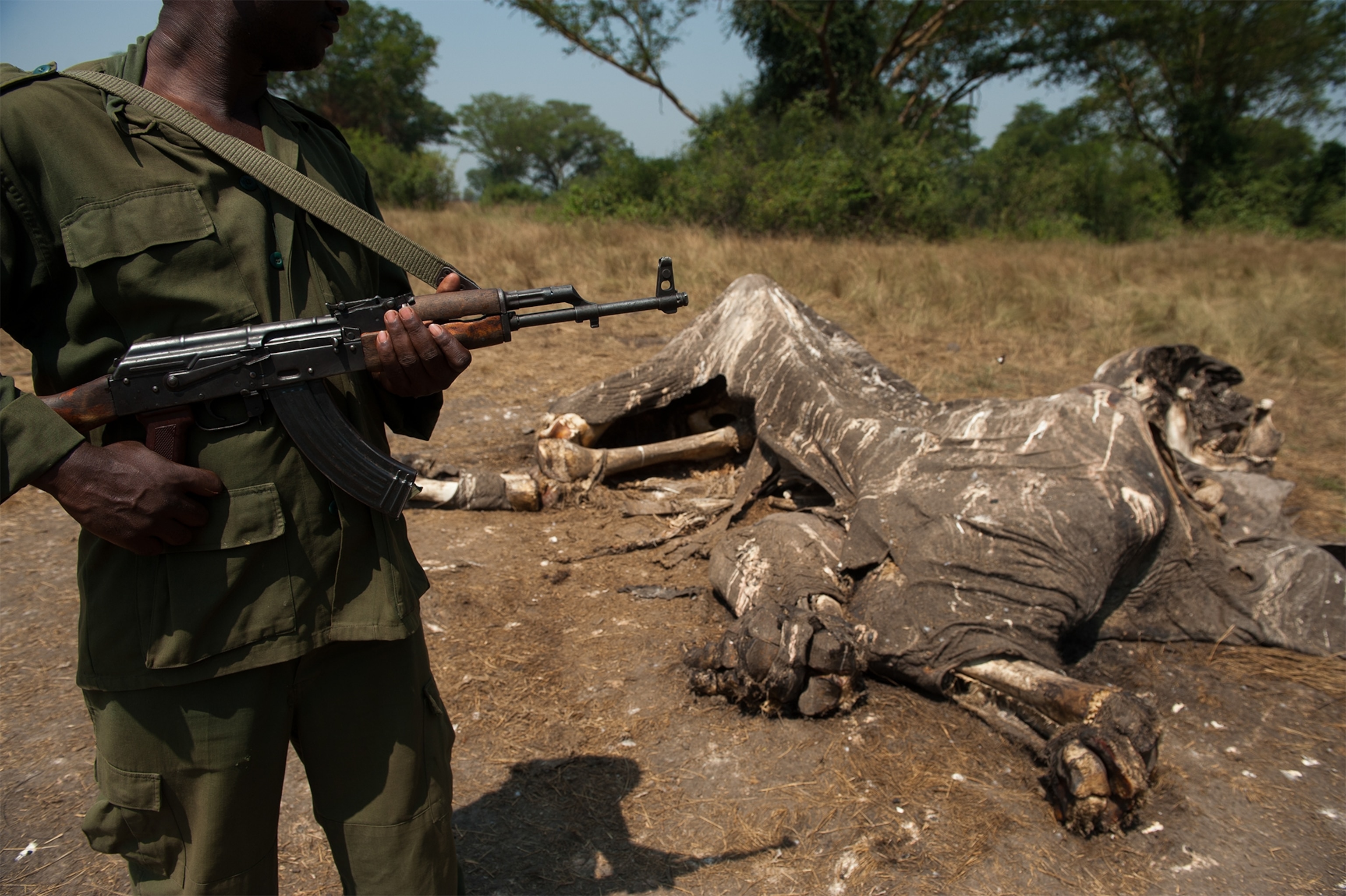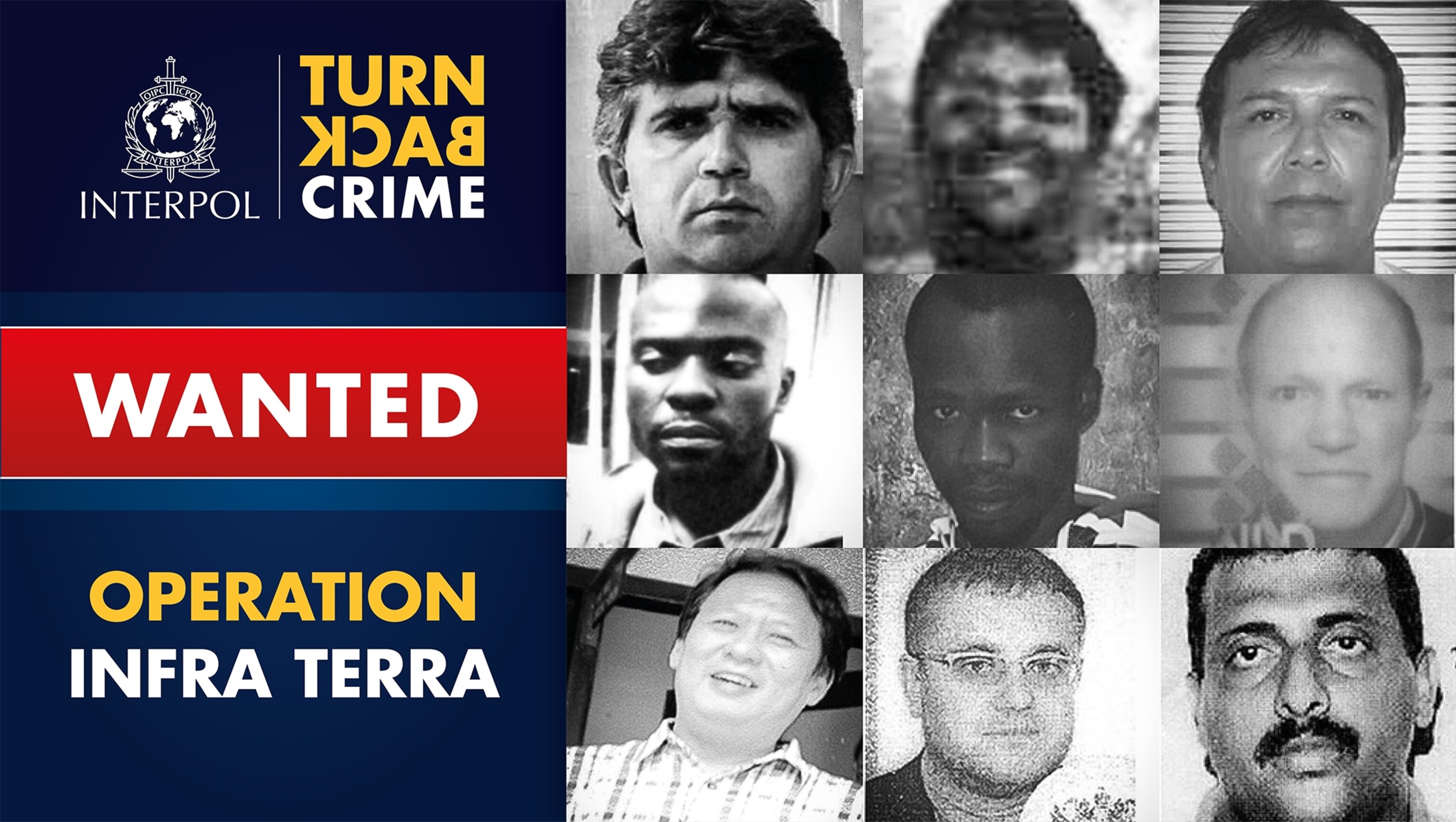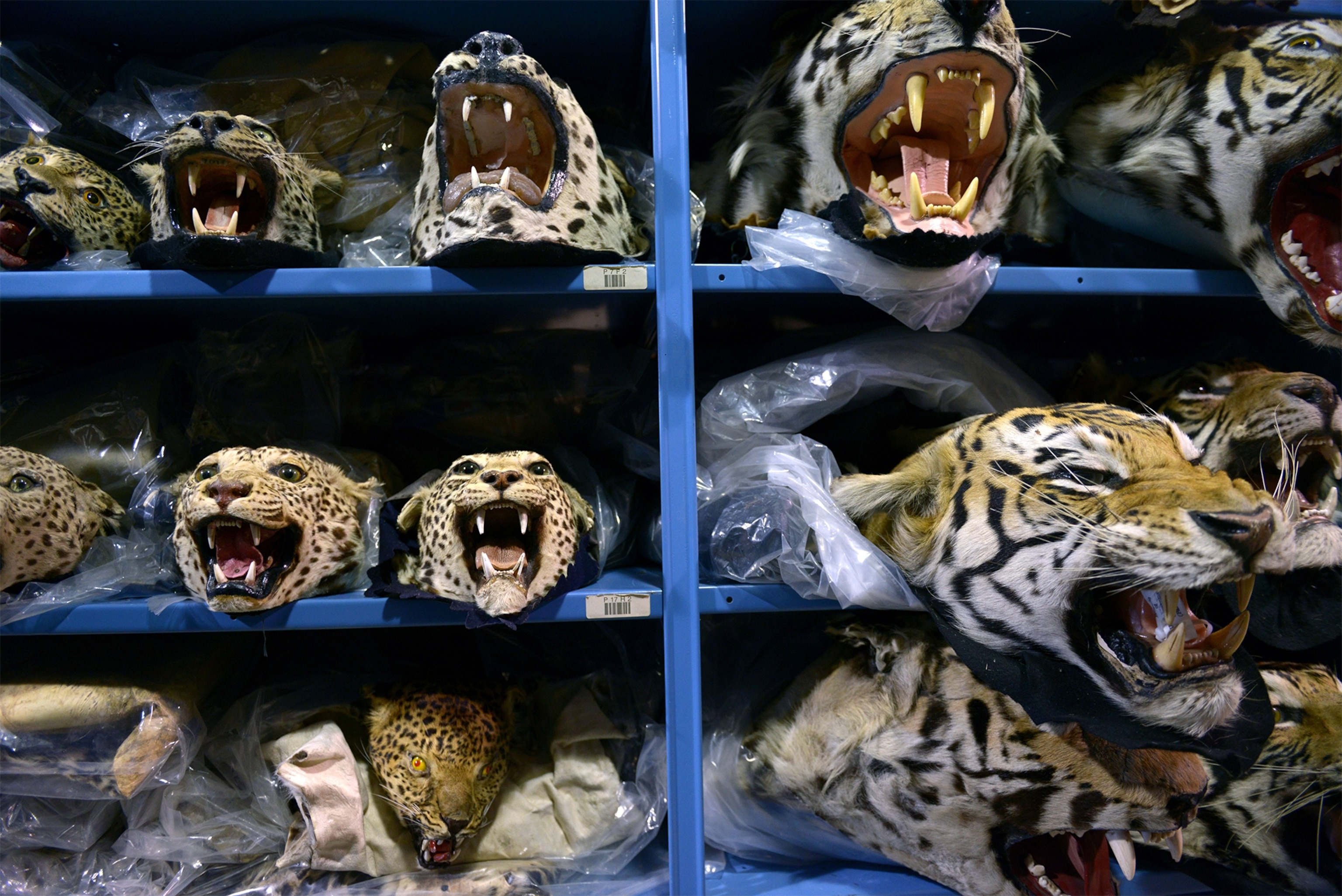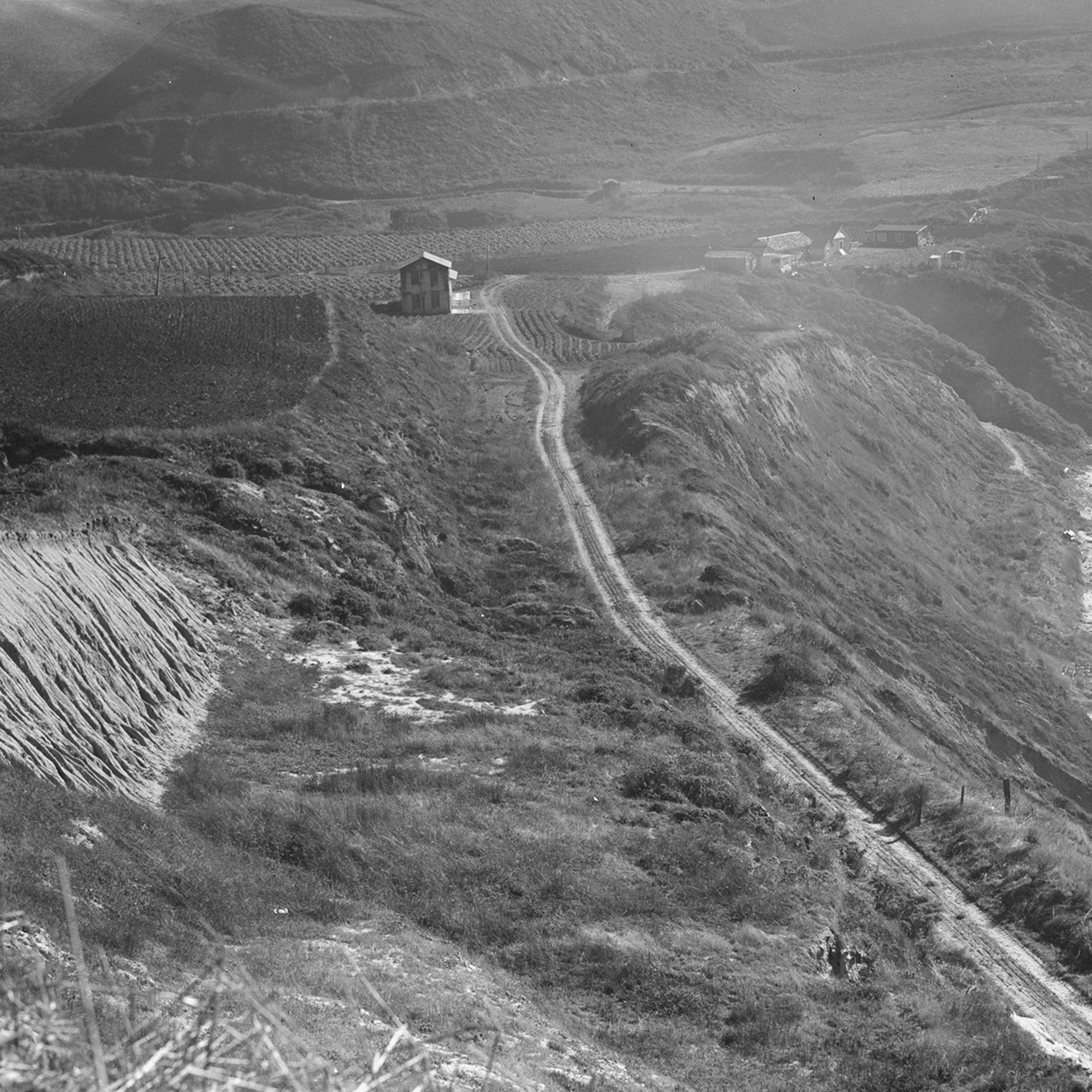
INTERPOL Asks Public to Help Nab Environmental Crime Fugitives
INTERPOL's new initiatives highlight the seriousness and scope of environmental crime.
On November 17, for the first time in its history, INTERPOL asked the public to assist in the capture of environmental crime fugitives. The landmark public appeal falls under INTERPOL's Operation Infra Terra, launched in October and targeting 139 criminals from 36 nations.
INTERPOL—the International Criminal Police Organization—is the world's largest international police organization, with 190 member countries.
The nine fugitives are accused of a range of crimes:
—Italian Adriano Giacobone is wanted for the discharge of toxic waste.
—Ariel Bustamante Sanchez, from Mexico, is "suspected of organizing illegal fishing in the waters of a national park in Costa Rica."
—Zambian Ben Simasiku was arrested for possessing ivory and reportedly then disappeared after being found with elephant tusks.
—Bhekumusa Mawillis Shiba (INTERPOL notes he "may be armed") is accused of poaching a rhino in Swaziland.
—Kenyan Feisal Mohamed Ali is believed to be the leader of an ivory trafficking ring.
—Nicolaas Duindam, from the Netherlands, is charged with trafficking wildlife in Brazil.
—Sergey Darminov organized illegal crab fishing in Russia.
—Sudiman Sunoto, from Indonesia, is blamed for illegal logging.
—The last of the nine, Pakistani Ahmed Kamran, is suspected of coordinating the illegal smuggling of live animals—including giraffes and impalas—from Tanzania to Qatar by military plane in 2010.

"If you have any information about any of these people, please send an email to our Fugitives Unit," reads INTERPOL's website. INTERPOL officials say information submitted to this site will remain confidential.
National Geographic spoke with two INTERPOL officials about the public appeal and environmental crimes: Davyth Stewart is a criminal intelligence officer with the Environmental Security Unit. Stefano Carvelli heads the Fugitive Investigative Support Unit and is supervising the search for the criminals.
Why did INTERPOL ask the public for help in capturing these nine fugitives?
Stefano Carvelli: One of INTERPOL's first objectives is to track down international fugitives. This year we decided to target environmental criminals on the run. It means we have 139 fugitives wanted for different crimes against the environment—wildlife trafficking, poaching, ivory trafficking, illegal fishing, or others. (Related: "Efforts to Curb Ivory Trafficking Spreading, but Killing Continues.")
The nine of them that you can see in the poster—their countries decided to make their profiles public and asked for our support. The aim is to try to get additional information to locate these people.
Why highlight these nine in particular?
Davyth Stewart: We reviewed all the cases we had, and we realized we had the most to gain by pulling these nine out.
These are internationally wanted fugitives who skipped bail or went on the run. We need the public to understand that environmental criminals are just as bad and evil and dangerous as other criminals.
How are they dangerous?
SC: They're not robbers or killers, but the danger posed to the environment and public health can be immediate—like the fugitive wanted for trafficking in illegal waste. They traffic in species—we're talking about the destruction of biodiversity. (Related: "100,000+ Elephants Killed by Poachers in Just Three Years, Landmark Analysis Finds.")
Also, these people aren't lone wolf criminals. People involved in environmental crimes are part of criminal organizations. Our aim is to dismantle those transnational criminal groups.
Since appealing to the public, has INTERPOL received tips?
SC: I want to say first, the appeal for the public, this is not something to replace the police work. The appeal is because we have assessed that public cooperation can be crucial.
What I can say is that so far the public response satisfies us. I can't tell you specifically if we have already received messages.

Give me an example of what information the public could offer?
SC: Maybe somebody met one of these fugitives at an airport. Or on a social network. Maybe you were in Africa, and someone proposed you purchase ivory. Maybe it happened six months ago, but the person looks like this person [on the poster]. Maybe it was a discussion on the Internet about killing rhinos. Or maybe someone even has information about poachers. (Related: "Why African Rhinos Are Facing a Crisis.")
If a person notifies INTERPOL with a tip, what happens next?
SC: INTERPOL is not an investigative agency. It facilitates police cooperation. It means all the information we receive is transferred to the country of the investigation. So if someone in the public engages us, this goes to the fugitive unit. The information they give us is assessed by us, verified by us, and dispatched for immediate action.
Is the approach for pursuing environmental criminals the same as other crime work?
DS: In terms of the crimes, the context is different, but the methods of concealment—forging documents, using corporate structures, or hiding proceeds—these are the same.
However, there is certain specialized knowledge for environmental crimes, like species identification. You need to understand the way the industry works. For example, logging and fishing can often look like law-abiding activity. So we need to know when it looks suspicious. But we work together with other enforcement agencies, so it becomes a multiagency collaboration.
Was there an event that precipitated INTERPOL to take environmental crime seriously?
DS: I think it's been a constant accumulation of criminal activity. At some point it just became too much to ignore.
It's also based on the information and observations we've been gathering, the criminals we've pursued for other activities like human trafficking, drugs, firearms—we've seen them move into environmental crime. That's because the profits are high, and the risks of apprehension are lower.
In 2009, INTERPOL established the Environmental Security Unit. We stepped up our focus because of the significant negative impacts environmental crime has to national economies, to security, to the governance of many countries, as well as the loss of resources.

There are at least 20 INTERPOL operations targeting environmental crimes. Operation Tigre (2010) targeted the illegal exploitation of tigers. Operation Cage (2012) targeted the illegal trade of birds, et cetera. What are the criteria of an "operation"?
DS: Our operations are country-led. So it's a response to country demand and need. [Member countries] come to us and point out issues they're dealing with on a national level. So we work in identifying priority areas with them.
Sometimes that's based on economics—perhaps the crimes are worth a lot of money. Or maybe it's based on the level of violence associated with the crimes. Maybe it comes down to the impact on biodiversity. Or the ability for a country to respond.
Are there trends you're noticing in regards to environmental crime?
DS: Ivory trafficking and elephant poaching are reaching record levels. We're also seeing an increase in poaching of rhinos in Africa and trade in rhino horn. (Related: "1,000+ Rhinos Poached in 2013: Highest in Modern History.")
We're seeing that illegal logging is a big issue and particularly the financial aspects of it—the amount of money made from illegal logging and associated fraud.
Environmental crime is worth between $70 and $213 billion a year. Which makes it number three or four in terms of profit. It's right up there with drugs, arms, and human trafficking. It certainly is in the same ballpark and makes it very attractive to organized criminals. (Related: "New UN Report Puts Staggering Dollar Figures on Environmental Crime Revenues.")
That's the biggest trend, actually. The increased involvement of organized crime—international networks and trafficking networks. These are criminals not just interested in environmental crime—[they] already have a criminal network involved in drugs and firearms trafficking. The people, therefore, who control firearms trafficking are actually delivering the firearms to the poachers. (Related: "Drug Trafficking Poses Surprising Threats to Rain Forests, Scientists Find.")
What species are under extreme threat besides rhinos and elephants?
DS: Tigers and other Asian big cats are under serious threat. Tigers in particular are on the brink of extinction in the wild. (Related: "Pictures: The World's Tigers—There Are Only 3,200 Left in the Wild.")
Are some environmental crimes more challenging in terms of successful arrests and prosecutions?
DS: Yes. I think especially timber and illegal fishing and illegal mining. One of the things that makes these especially complicated is there's a significant legal trade, and it's hard to separate legal from illegal. It takes a real level of sophistication to track it through the supply chain.
Tiger skins, elephant ivory, and rhino horn—when you see someone at a border point [with them], you assume there's a problem here. (Related: "Illegal Tiger Trade: Why Tigers Are Walking Gold.")
One of the other challenges for natural resources like timber is that they're extracted by companies. These companies push the boundaries and then sometimes take what they shouldn't. But they have a corporate structure in place, so they can conceal that activity.
So from a law enforcement perspective, natural resources require the most sophisticated investigative tools. I should add that these natural resources-timber, fishing, and mining—tend to be the most valuable. And they also are often accompanied by politically sensitive interests.
Like what?
DS: Well, these are often legitimate industries, and the majority of actors are law abiding. They bring in significant revenues and help the economy for developing countries. This makes it much more sensitive. But also it's unfortunate, because if these countries addressed the illegal activity, the law enforcement effort would more than pay for itself.
What companies are known to engage in timber crime?
Criminal activity takes place across the entire timber supply chain. This includes the logging companies involved, the transport and export companies, and the timber processing plants. (Related: "Myanmar's Pending Ceasefire Jeopardized by Skirmishes Over Illegal Logging.")
To avoid prejudicing any ongoing investigations, I cannot name companies—although many companies in the timber industry have a bad record for illegal activity, which is readily available through open-source research of press stories, et cetera.
In general do those who commit environmental crimes come from one area of the world—or country—more than others?
DS: Environmental criminals come from nearly every country. Banking systems can be set up in North America. Shipping companies can come from China. Container companies can be in Africa. There isn't one country that's developing more criminals than others. We have foreign nationals all over the world involved in environmental crime.
Part of INTERPOL's mandate is to promote international police cooperation. Is it a challenge to get police officers to care about environmental crime?
DS: This is a challenge. There's often an assumption amongst police that no victim means no crime. And one of the things we're doing is explaining that there is a victim to the crime. The impacts may not be so obvious. But they are significant.









